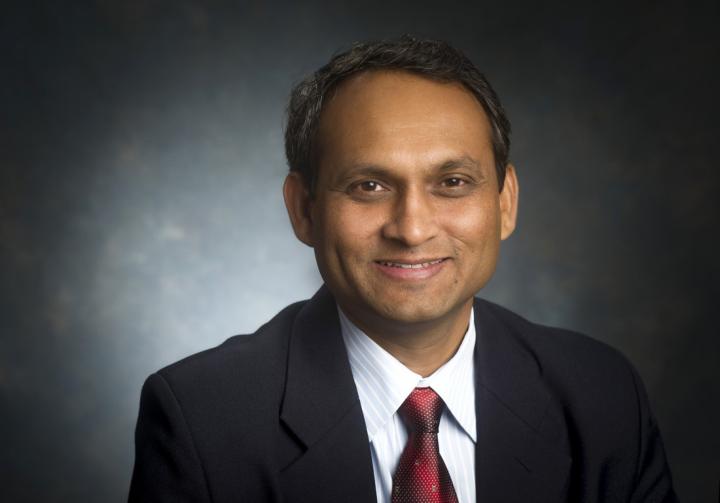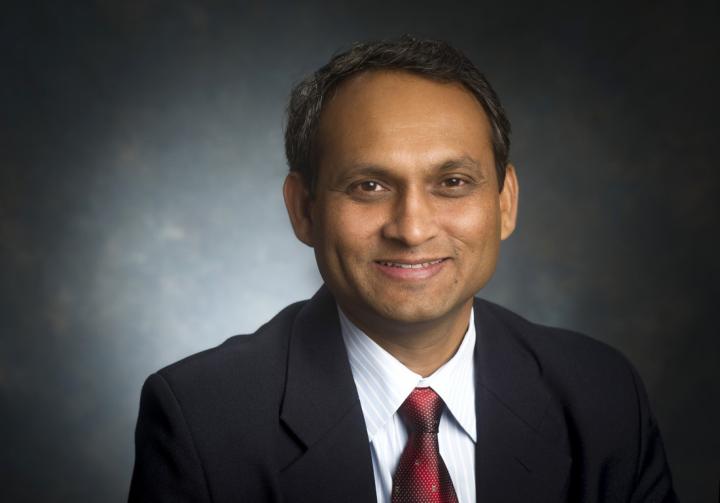
Credit: UAB
BIRMINGHAM, Ala. – In mouse experiments, University of Alabama at Birmingham researchers have shown how aging and excess dietary fat create signals that lead to heart failure after a heart attack.
Clarifying the mechanism of this harmful pathway is important because nearly 5 million people in the United States suffer heart failure as an age-related disease following heart attacks. Half of them die within five years, and the annual cost for health care, medications and missed work is $32 billion.
Knowledge of the dysfunctional lipid signaling that triggers heart inflammation and heart failure could be essential to discovering therapeutic treatments for the millions of aging patients at risk of heart failure after heart attacks.
The problem of heart failure is a nonresolving, overactive inflammation at the heart. After a tissue injury, such as death of muscle tissue in a heart attack, the body has a beneficial, early acute inflammation response that removes dead cells and begins repairs to the injured area. In healthy healing, the acute inflammation resolves, and a healing process follows.
In healthy healing, particular lipids that the body produces from essential dietary fat appear to act as signals to resolve the early acute inflammation, including a group of lipids called resolvins.
In contrast to such healthy healing, UAB researchers have found that a combination of age and excess omega-6 fatty acid in the mouse diet led to increased heart inflammation as compared to aged mice that ate a lower-fat, lab chow diet.
Intriguingly, the typical Western diet is much higher in the ratio of omega-6 fatty acids to omega-3 fatty acids, similar to the excess omega-6 fatty acid diet given to the mice. The so-called Mediterranean-style diet, which has much less meat, has a much lower ratio of omega-6 to omega-3 fatty acids, and people who eat a Mediterranean-style diet are known to develop less heart disease.
UAB researchers, led by Ganesh Halade, Ph.D., assistant professor in the Division of Cardiovascular Medicine, UAB Department of Medicine, report that four steps led to the nonresolving inflammation.
The aged mice that were fed with excess omega-6 fatty acid, in contrast to lean aged mice, had: 1) lower amounts of three types of lipoxygenase enzymes in the dead area of the heart muscle, enzymes that can produce resolving signal lipids such as the resolvins from dietary omega-3 fatty acids; 2) lesser amounts of resolvins and several other lipid signals that help resolve acute inflammation; 3) increased amounts of macrophage immune cells that are pro-inflammatory; and 4) increased kidney injury and increased levels of two signaling cytokines that promote inflammation — tumor necrosis factor-alpha and interleukin-1-beta.
Thus, as Halade and colleagues report in the journal Aging, excess fatty acid intake magnifies chemokine signaling after a heart attack in aged mice, and this drives the signaling network between the heart and spleen and the heart and kidneys toward a nonresolving microenvironment.
The excess omega-6 fatty acid for the mice came from enriching their diet with safflower oil. Techniques used to elucidate the dysregulated lipid signaling pathway in the aged mice included liquid chromatography-mass spectrometry metabolipidomics to analyze lipid mediators and flow cytometry to analyze immune cells.
###
Besides Halade, co-authors of the paper, "Aging Dysregulates D- and E-Series Resolvins to Modulate Cardiosplenic and Cardiorenal Network Following Myocardial Infarction," are Vasundhara Kain, Ph.D., Laurence M. Black, Sumanth D. Prabhu, M.D., and Kevin A. Ingle, all of the Division of Cardiovascular Disease, UAB Department of Medicine.
At UAB, Prabhu is the Mary Gertrude Waters Chair of Cardiovascular Medicine.
Media Contact
Jeff Hansen
[email protected]
205-975-3914
http://www.uab.edu
############
Story Source: Materials provided by Scienmag




